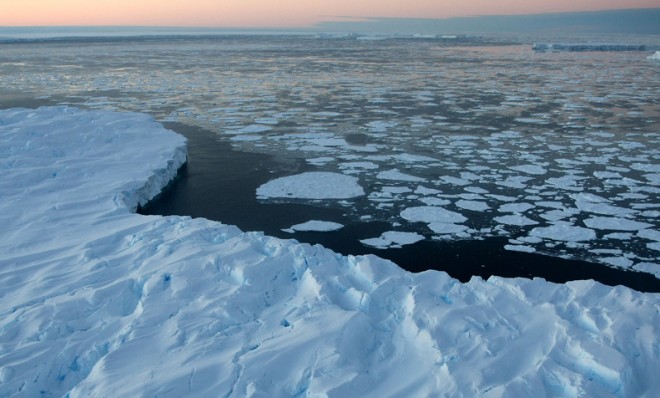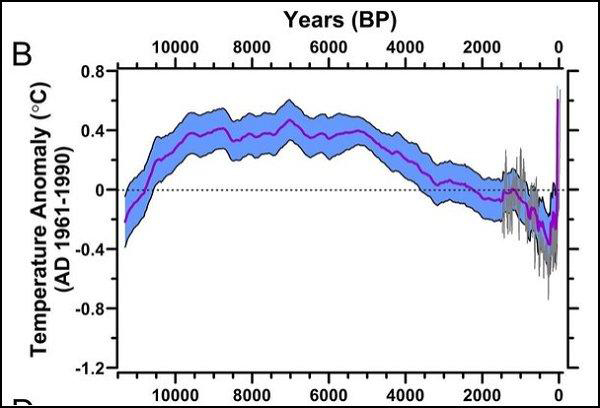Scientists say Earth is hotter today than it has been for nearly all of the last 11,000 years
And it's only getting hotter

A new study published Thursday in the journal Science contains some eye-popping numbers regarding global temperature changes over the last few millennia. Per The Wall Street Journal:
New research suggests average global temperatures were higher in the past decade than over most of the previous 11,300 years, a finding that offers a long-term context for assessing modern-day climate change. [Wall Street Journal]
Previous climate research presented a much more condensed snapshot, stretching back 1,500 years max. According to The New York Times, these past studies also concluded "that the rapid temperature spike of the past century, believed to be a consequence of human activity, exceeded any warming episode during those years."
But this new, expansive experiment — led by Oregon State's Shaun Marcott — gives us a much wider scope of how Earth's temperatures have changed, stretching back to a warm period following the last Ice Age known as the Holocene. Scientists claim that this period of increased sunlight, which caused the northern ice sheets to melt, "set the stage for the rise of human civilization" by "permitting a high level of food production" about 8,000 years ago, says The Times.
The Week
Escape your echo chamber. Get the facts behind the news, plus analysis from multiple perspectives.

Sign up for The Week's Free Newsletters
From our morning news briefing to a weekly Good News Newsletter, get the best of The Week delivered directly to your inbox.
From our morning news briefing to a weekly Good News Newsletter, get the best of The Week delivered directly to your inbox.
In their findings, Marcott's team discovered that it took 11 millennia from the Holocene's start for the global temperature to increase one degree. After that, it took just another 150 years — basically from the Industrial Revolution till now — for the temperature to rise another degree.
"What's different is the rate of change," says Marcott. "What we've seen over the past 150 years is much greater than anything we saw in the past 11,000 years." The team relied on proxy measurements from various sources to piece together a timeline of global temperature estimates — including readings from marine fossils, ice cores, and pollen levels.

So what does it all mean? According to the Journal:
The decade 2000-2009 was one of the warmest since modern record-keeping began. ... If the scientists' forecasts are correct, the planet will be warmer in 2100 than it has been for 11,300 years. [Wall Street Journal]
A free daily email with the biggest news stories of the day – and the best features from TheWeek.com
-
 Grok in the crosshairs as EU launches deepfake porn probe
Grok in the crosshairs as EU launches deepfake porn probeIN THE SPOTLIGHT The European Union has officially begun investigating Elon Musk’s proprietary AI, as regulators zero in on Grok’s porn problem and its impact continent-wide
-
 ‘But being a “hot” country does not make you a good country’
‘But being a “hot” country does not make you a good country’Instant Opinion Opinion, comment and editorials of the day
-
 Why have homicide rates reportedly plummeted in the last year?
Why have homicide rates reportedly plummeted in the last year?Today’s Big Question There could be more to the story than politics